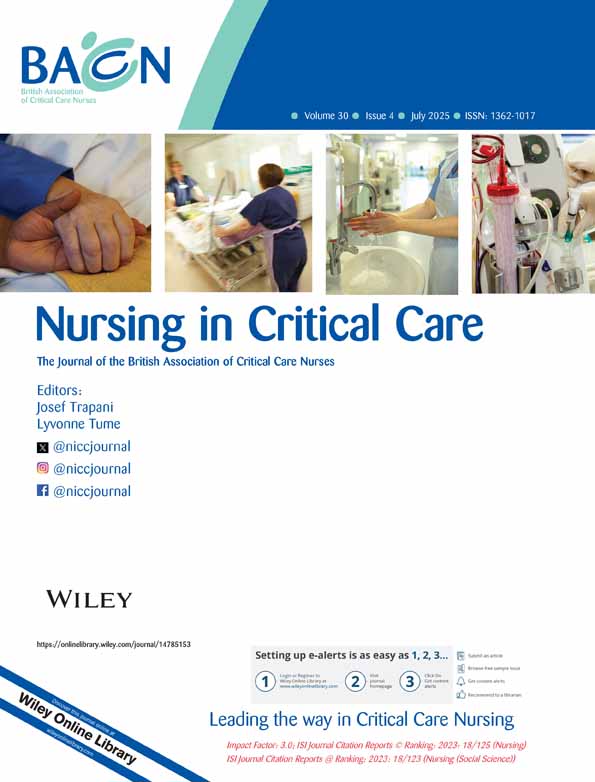Interaction Experiences of Family Members With Their Unconscious Relatives on Mechanical Ventilation in the Intensive Care Unit: A Phenomenological Qualitative Study
Funding: The authors received no specific funding for this work.
ABSTRACT
Background
Mechanical ventilation is a life-saving intervention for critically ill patients in intensive care units, often leading to unconsciousness due to sedation, neurological impairment or metabolic dysfunction. Family members of unconscious patients face significant emotional and psychological challenges, including uncertainty, anxiety and helplessness. Understanding their interaction experiences is crucial for improving support strategies.
Aim
This study aims to explore the interaction experiences of family members with their unconscious relatives on mechanical ventilation in the intensive care unit.
Study Design
A phenomenological qualitative approach was employed, utilising semi-structured interviews with 15 family members of unconscious patients in intensive care units. Data were analysed using Colaizzi's and Giorgi's phenomenological methods with MAXQDA software to identify themes and sub-themes.
Results
Five interconnected themes emerged: Bonding and Communication Challenges, Psychological and Emotional Burden, The Meaning of Physical and Verbal Interaction, Coping Strategies and Communication with Healthcare Professionals. These themes illustrate the complex emotional, cognitive and relational impact of unconsciousness and mechanical ventilation on families. Physical and verbal interactions were found to serve therapeutic and relational functions, while coping involved hope, patience and spiritual meaning-making. Communication gaps with healthcare professionals increased distress, highlighting the need for clear, empathetic and consistent information-sharing.
Conclusion
The findings emphasise the critical role of effective communication and psychosocial support in addressing the emotional burden faced by family members of unconscious intensive care unit (ICU) patients. Integrating family-centred care with empathetic communication strategies can help alleviate uncertainty and promote psychological well-being.
Relevance to Clinical Practice
Empathetic communication, structured emotional support and transparent information-sharing within a family-centred care approach are essential for alleviating the emotional and psychological burden experienced by relatives of unconscious ICU patients and for enhancing the overall quality of critical care delivery.
Conflicts of Interest
The authors declare no conflicts of interest.
Open Research
Data Availability Statement
The research data are not shared due to ethical and confidentiality restrictions.




